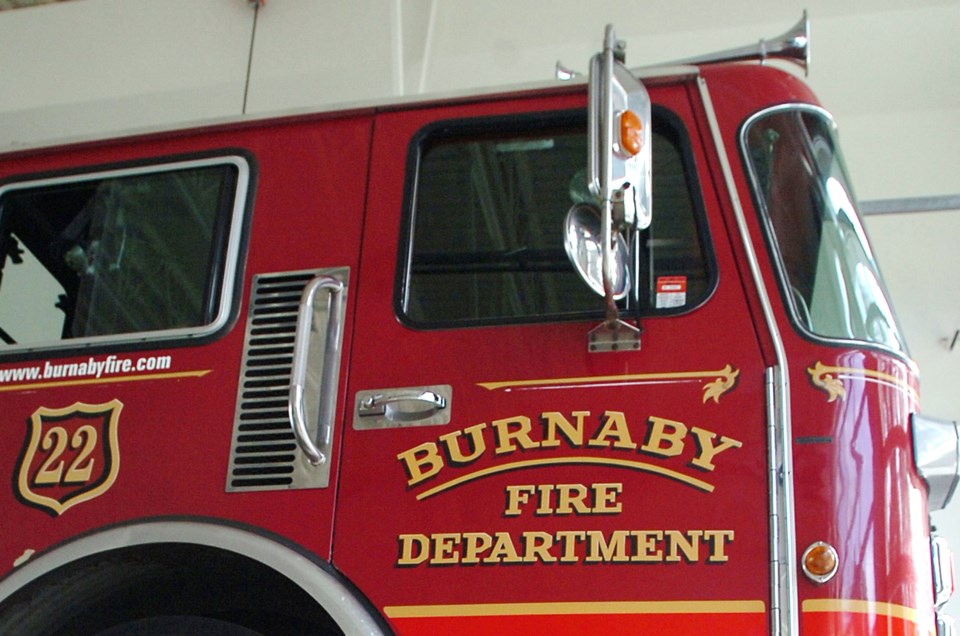City council is concerned what the backlash will be following an ambulance service shift in responding to different emergency calls.
At its last meeting, Burnaby council rang the alarm over protocol changes to B.C. Ambulance Service's resource allocation plan announced in late October.
The major change is that more calls have been designated as routine and medically do not require a lights-and-siren response or first responder assistance. But ambulances will still attend every call.
"Seventy different services that were previously code three, that's lights and sirens and ambulance get there right now, have now been downgraded to code two, which is referred to as a cold response," said Coun. Colleen Jordan.
Calls for a suspected aortic aneurysm and abdominal pain are now considered code two, according to a report from Burnaby's fire chief Doug McDonald.
"So 75 of those (services) have been downgraded, and so the ambulance service doesn't have to go there, zoom, fast, lights and sirens, but the fire still does," she noted. "Our people have to go. In speaking with the (fire) chief ... we already have some of our fire (services) sitting at a call waiting for an ambulance for more than an hour."
Jordan noted that while the firefighters are waiting for an ambulance they may be missing other important emergency calls.
"This is a horrible mess," she added. "We'll have to start tracking and making sure we have a log of what implications this is causing for the fire service, if it's already starting to impact us and then have some kind of report from staff on what the implication can be.
"I'm really frightened what it means for us as a city, but also what it means for people who want care."
Coun. Paul McDonell, a former deputy fire chief, said the decision "came out of the blue." He agreed that it will impact the city's fire service.
"There's also a statement made by the B.C. Ambulance Service that this will save them 30 per cent on their budget," he added. "So, follow the money. What they're doing is they're going to balance this budget, the provincial budget, and the cuts are coming. This is just the first wave of them in health care."
With the flu season coming up, McDonell said ambulance calls will heavily increase in the next few months and that will "compound" the issue.
"They'll balance the budget on the back of the people," he added. "You can see the impact it'll have on us for providing the other service, which is firefighting. That's why they're firefighters."
Mayor Derek Corrigan said he was also concerned over the potential for people in crisis to be left waiting.
"If the provincial government wants to talk about efficiency and wants to work with us ... the door is always open," he said. "But this isn't a matter of anyone having a discussion with us."
But the changes are meant to increase the number of routine calls, according to B.C. Emergency Health Services spokesperson Kelsie Carwithen.
"It is very important to note that we will not be making changes to first responder notification ... without further consultation with first responders over the next month," she said in an email to the NOW.
The decision to change the resource allocation plan came out of a review that happens regularly, and changes are based on medical evidence. In this case, physicians and a working group reviewed 630,000 patient records.
"The review showed that it is not medically necessary (and therefore not an effective use of their resources and portion of the municipal budget) for first responders to attend some calls as in the past," she said. "However, they will still be providing other non-medical services like extraction and jaws of life, etc."
Carwithen stressed that the decision is not a cost-saving measure because an ambulance will still attend every call.
"This is simply a way to ensure that we are keeping the public, patients, paramedics safe by reducing the mode of the response. (For example), code three response (driving fast) versus routine (driving the speed limit)."
Any further changes to the plan will not be done without consultation, Carwithen noted.
"Some local governments only wish to provide assistance to paramedics when clinically required, while others wish to respond to a greater number of calls (even if not medically required)," she said. "I understand Burnaby may be one of these municipalities. Is this a good use of their budget, to attend when it is not medically necessary?"
In the coming months, the B.C. Ambulance Service is expected to change the first responder component to the resource allocation plan "in order to ensure first responder resources are being used appropriately as part of B.C.'s emergency medical service system," Carwithen added.



